Tachyon tidbits featuring James Patrick Kelly, Alastair Reynolds, and Nalo Hopkinson
The latest reviews and mentions of Tachyon titles and authors from around the web.
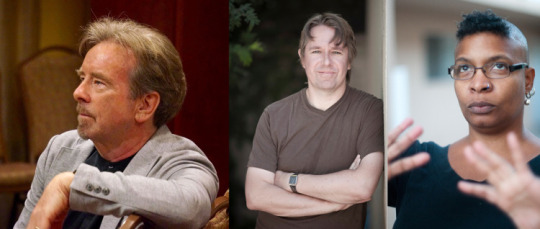
James Patrick Kelly (photo: Bill Clemente), Alastair Reynolds (Barbara Bella), and Nalo Hopkinson (David Findlay)
On his popular podcast EATING THE FANTASTIC, Scott Edelman sat down with the award-winning James Patrick Kelly.
When I’d asked Jim which kind of cuisine he’d prefer for our chat—because as you may have noticed, I do try to keep my guests happy, the better to loosen their tongues for you—he admitted to a weakness for Fettuccine Carbonara. That led us to Quincy’s Gennaro’s Eatery, which didn’t have Fettuccine Carbonara on the menu, but as the place served both Tortellini Carbonara and Fettuccine Alfredo, that seemed close enough.

(photo: Scott Edleman)
James Patrick Kelly is a Hugo and Nebula Award-winning writer who recently published a career short story retrospective as part of the Centipede Press Masters of Science Fiction series. And had I not been turned down by the Clarion Science Fiction Writers Workshop in 1974, I might have shared a dorm room with him! (But don’t worry. I was accepted in 1979.)
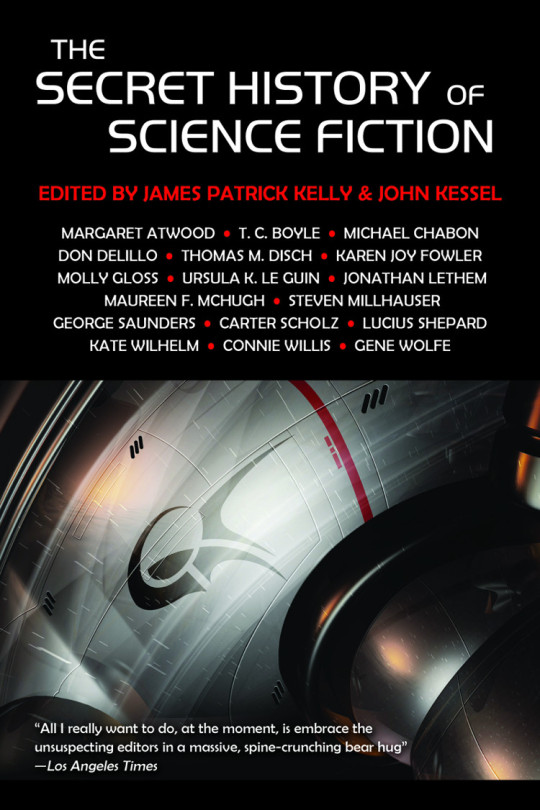
We discussed the reason he needed to attend the Clarion Science Fiction Workshop twice—and why the rules were then changed so no one could do it again, the suggestion Kate Wilhelm made that saved one of his short stories, why his reaction to comics as a kid was “Marvel, yes, DC, feh,” how the science fiction field survived the Cyberpunk/Humanist wars of the ‘80s, why he takes an expansive view of fanfic, how Cory Doctorow inspired him to enter the world of podcasting early, what allows him and frequent collaborator John Kessel to work together so well, his advice for how writing 10 endings to a story in progress will help writers find the right ending, and more.
Neal Ulen at FUTURISM interviews the acclaimed Alastair Reynolds.
On Artificial Intelligence—Great! Let’s jump right in. The development of artificial intelligence (AI) is a recurring theme in your works. Do you think AI could be a benefit to humanity, a danger (as many believe), or something slightly more… ambiguous?
I’d have to draw a line between what’s likely in the next few decades, and what might happen in a few hundred or thousand years. I’m rather skeptical about advances in AI in our immediate future, although I try to follow the field and I’m interested in the different strategies being pursued. But I don’t think we’re going to see a human or super-human level machine intelligence any time soon. I think what we’ll have is basically an extension of what we have today — lots of algorithms that can do rather impressive and useful things, such as voice recognition, face recognition, remote diagnosis, behaviour tracking, and so on, but which are only as beneficial or counter-beneficial as the intentions of the people deploying them.
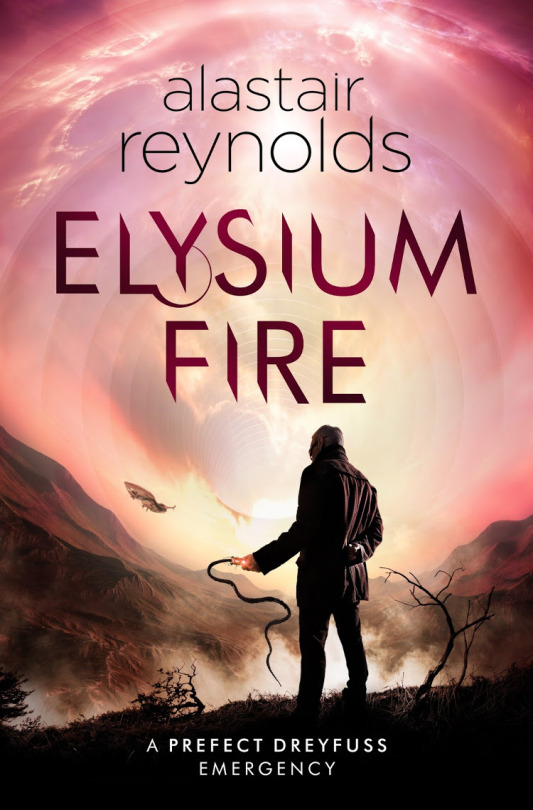
On The Singularity—Following up on that question, what are your thoughts on the “technological singularity” as popularized by Vernor Vinge and how it’s interpreted today? Do you believe humanity will ever enter a state of hyperbolic advancement from which there’s no return? And if so is there a way to avoid this theoretical singularity?
I like Vernor’s work very much, but I’m a little skeptical of the whole idea of the singularity. I get the reasoning, but I don’t feel we’re on that particular track. I’m typing this on a fifteen year old Dell PC which provides everything I need in my non-internet-enabled writing office. I have a much more recent and powerful laptop in the house which I bought last year, and which — according to the prognostications of 15 years ago — ought to be some sort of quantum-optic supercomputer with a holographic keyboard and flawless voice recognition. But it’s not. It’s just another Windows PC, exactly as useful and stupid as the Dell, and it doesn’t even feel particularly faster or more powerful, because the software it’s obliged to run is much more bloated. For efficient word processing, I much prefer using the Dell.
Even if there is something like a singularity on the horizon, I think we’ll have plenty of warning as we approach the cusp, time enough to back off and consider our options. It’s not a groundless concern but I’d suggest that there are several dozen more pressing problems we need to be focusing our collective intelligence on. However, it does provide a very good story-generating trope for science fiction.
For BOOK RIOT, Casey Stepaniuk’s 100 Must-Read Bisexual Books includes a pair of Nalo Hopkinson’s novels.
SISTER MINE by Nalo Hopkinson*
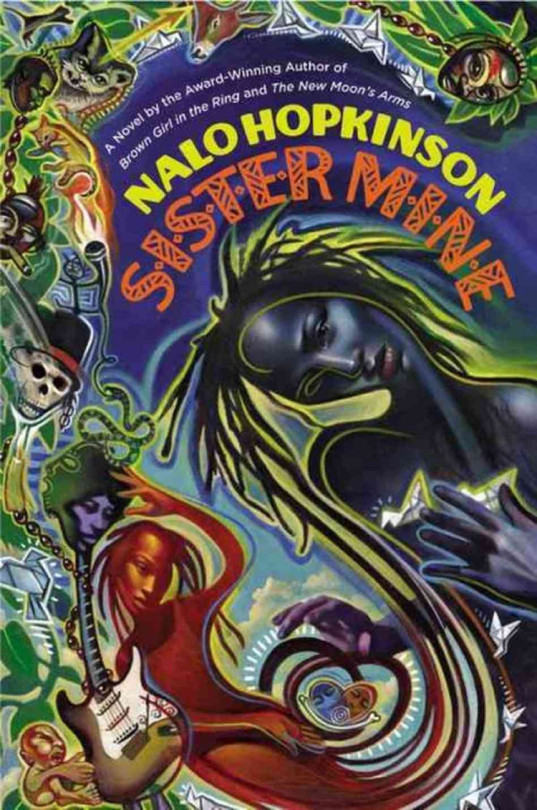
Set in Toronto with fantasy elements informed by Afro-Caribbean mythology, this novel stars Makeda, a young woman with a human mom and demi-god dad. She was born conjoined with her twin Abby; their separation has left Abby disabled (she uses crutches) while Makeda hasn’t a drop of celestial mojo (magic). When her father goes missing, Makeda is forced to reconcile with her sister and jump back into the magical world she tried to leave.
The SALT ROADS by Nalo Hopkinson*
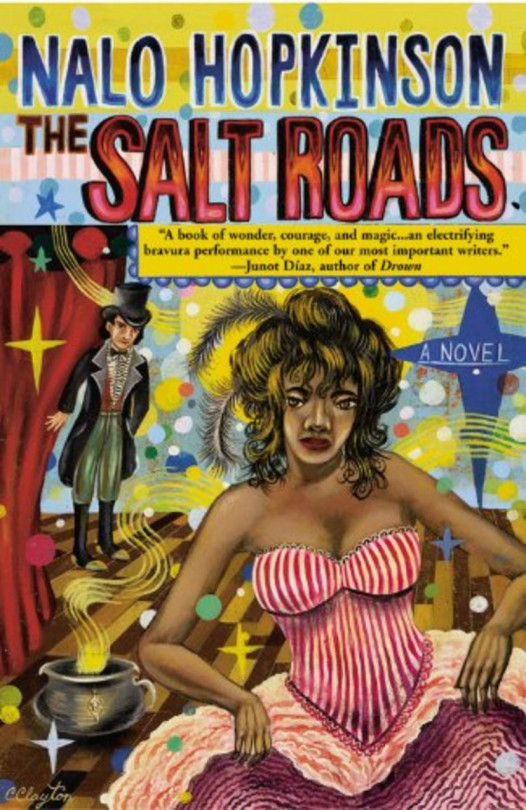
This genre-defying novel transports readers across centuries and civilizations as it fearlessly explores women’s relationships. Jeanne Duval, the ginger-colored entertainer, struggles with her lover poet Charles Baudelaire…Mer, plantation slave and doctor, both hungers for and dreads liberation…and Thais, a dark-skinned beauty from Alexandria, is impelled to seek a glorious revelation—as Ezili, a being born of hope, unites them all.
For more info about THE SECRET HISTORY OF SCIENCE FICTION, visit the Tachyon page.
Cover by Ann Monn
